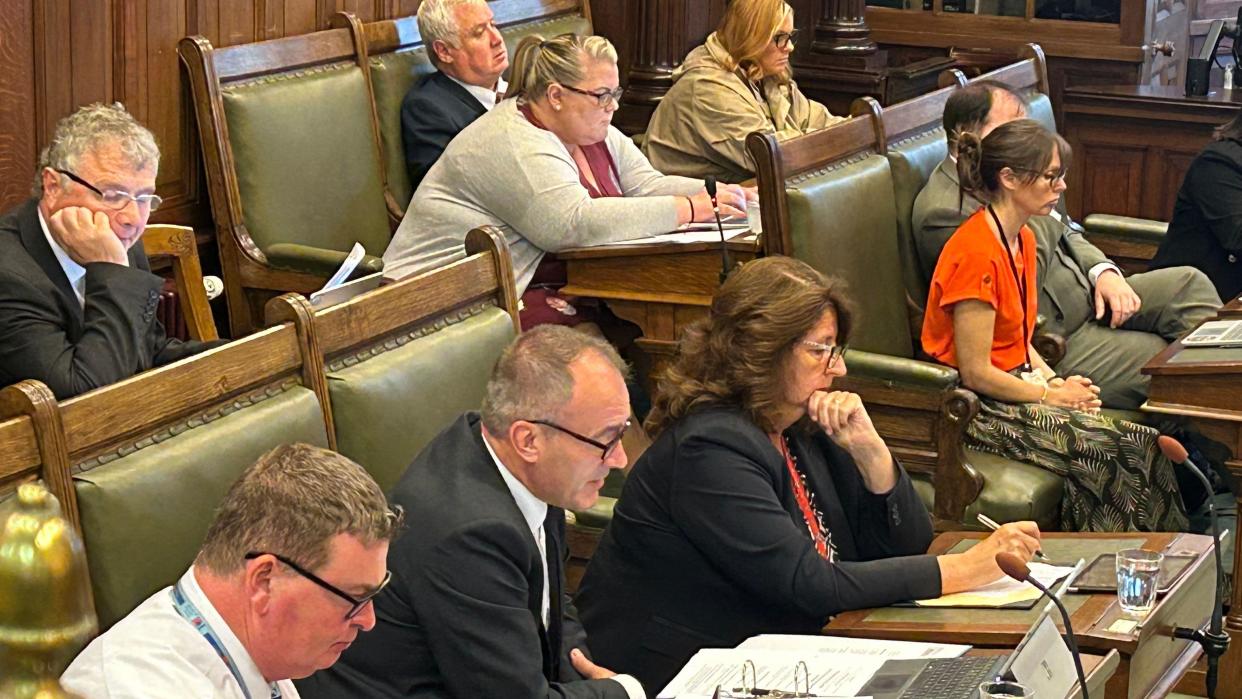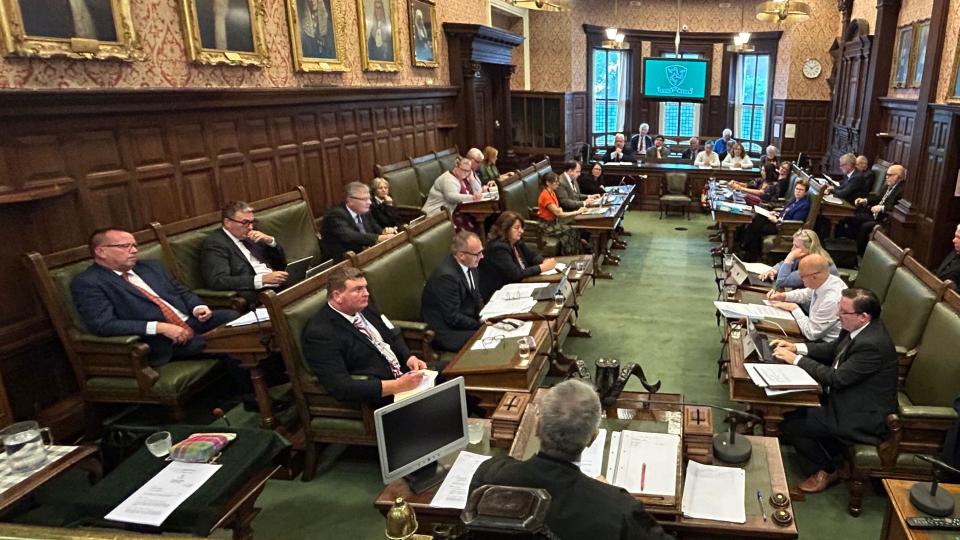Assisted dying referendum bid narrowly rejected

A bid to put proposed assisted dying legislation to a public vote on the Isle of Man has been narrowly rejected in the House of Keys.
An amendment put forward by Chief Minister Alfred Cannan called for a referendum, which would give terminally-ill residents with up to 12 months to live the right to choose to die.
During Monday's extra sitting, Mr Cannan said "such significant changes" to the delivery of care on the island was "deserving" of a formal poll.
But the bid to allow residents to take part in a referendum on the issue was defeated by 12 votes to 11.

Public opinion was narrowly divided on the issue in a consultation held in April 2023 where more than 3,000 people shared their views.
The amendment by Mr Cannan - which he put forward in his capacity as a constituency MHK for Ayre and Michael - said, should the proposed bill pass through both branches of Tynwald, a referendum would be held by the 31 December 2025 or within six months after it received Royal Assent.
Politicians also heard a call from Ballabeg resident Sue Biggerstaff, who supports the campaign to change the law following the death of her husband Simon as a result of motor neurone disease, to reject the referendum.
She told MHKs she was against the vote because she felt there were "lots of people with no understanding" of end of life.
Alex Allinson, who brought the private member's bill forward, said the bid for a public vote was "an attempt abdicate our role and responsibility to act as the representatives of our constituents".
'Fundamental change'
Responding to concerns the move was a "stalling tactic", Mr Cannan said relevant laws governing a referendum could be brought forward "incredibly quickly", as seen with recent changes to gas regulations.
"I think we should trust the people because ultimately this is a change that could have significant impacts on individuals families, health care professionals and across society," he said.
Also backing a public vote, Tim Glover said the bill would "change forever the fabric of island life and the way medical services will work".
"When such a fundamental change is on cards, the people should have their say," he added.
Mr Glover, along with Rob Callister, Claire Christian, Ann Corlett, Julie Edge, Kate Lord-Brennan, Jason Moorhouse, Andrew Smith and John Wannenburgh supported the referendum.
However it was voted down by Alex Allinson, Clare Barber, Daphne Caine, Tim Crookall, Joney Faragher, Michelle Haywood, Lawrie Hooper, Tim Johnstone, Sarah Maltby, Stu Peters, Jane Poole-Wilson and Speaker Juan Watterson.
Members also decided to reject amendments put forward by Mr Thomas that would delay the bill's introduction until the Capacity Act 2023 had been in operation for a least one year and until a regulatory regime for the laws was in place.
Why not follow BBC Isle of Man on Facebook and X? You can also send story ideas to IsleofMan@bbc.co.uk


